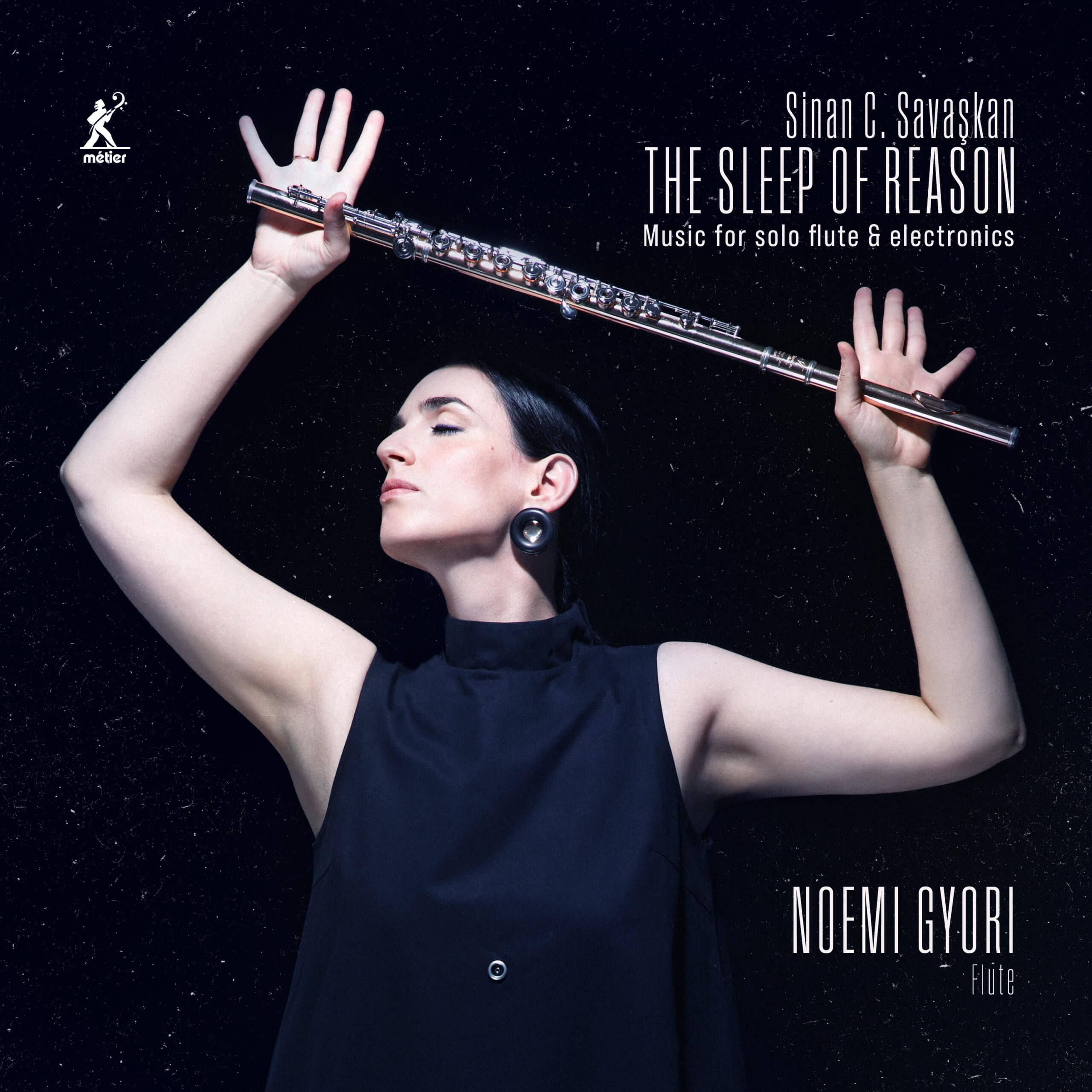Fanfare
Flutist Noemi Gyori suggests listening to this subtly engrossing program of music by the Turkish-born, London-based composer Sinan Savaşkan “perhaps in dimmed light or with closed eyes, letting themselves feel the shadowed ambience and enveloping richness.” It is excellent advice. Although the four pieces here are different in important ways, they all share a linear sense of energy that is in contrast to a classicist’s reliance on distinct structure and episodic development. This gives his music an improvisational, even dreamy quality, akin to certain styles of jazz, which is surely also a product of Savaşkan’s close artistic relationship with Gyori, who, according to the composer’s notes, influenced some editing to the music. Two of the works are for solo flute and electronics. Savaşkan’s use of electronics is refreshingly light in touch, employing samplings of the flute, which are subjected to deliberate but thoughtfully calculated distortions. The Sonata that opens the program is one of them, a work in nine short movements that flow along with subtle expressive power, and a melodic structure that is reminiscent of Japanese kabuki music. Always at Dusk, No. 3 for alto flute and electronics is one of 10 “Always at Dusk” pieces. To put it perhaps oddly, I found the music to be pretty in its modernistic way. The Sleep of Reason, which is also the title of the album, was conceived on an unpleasant six-hour train ride in 2005. The title is borrowed from one of Goya’s Los Caprichos etchings (The Sleep of Reason Produces Monsters). Despite this dreary origin, the music, constructed of four ritornello variations interspersed with three “episodes,” manages to be quirky and alert. Pas de Deux for One is the earliest work here, written in 1978 and inspired by the legendary avant-garde films of Maya Deren, and enhanced in 2023 to exploit the virtuoso abilities of Noemi Gyori. The composer nearly apologizes for his use of “mid-twentieth century modernist mannerisms,” but I found the engaging music to be neither callow nor pretentious.
@divineartrecordingsgroup
A First Inversion Company
Registered Office:
176-178 Pontefract Road, Cudworth, Barnsley S72 8BE
+44 1226 596703
Fort Worth, TX 76110
+1.682.233.4978












